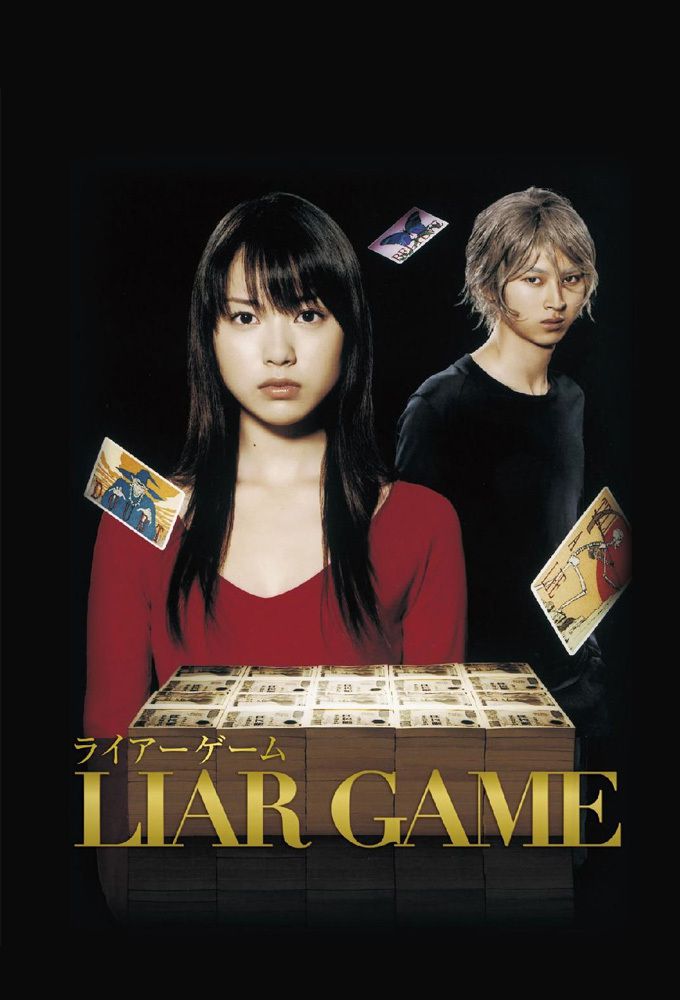Contributed by Mark Christian Jr.

- Goal
- Reach a predetermined high score. The target score should be agreed in advance between the players. 500 is a ten minute game, 2000 is around a thirty minute game.
- Requirements
- Two or more players
One or two standard decks of playing cards (52 cards + 2 jokers in each deck)
A way to keep score (Paper and pen, cell phones, good memory, etc.) - Initial deal
- 6 cards are dealt to each player at the start.
- Play
- In each round, each player chooses three cards to display as a hand, and leaves three in the pocket (face down in front of the player)
All players reveal their chosen three-card hands, and the player whose hand scores the highest point total wins.
The winning player adds the point value of the winning hand to his or her score. The other players neither gain nor lose lose points.
All used cards are discarded.
Each player is dealt three new cards from the deck which are added to their pocket cards. If there are not enough cards for the deal, the pile of used cards is shuffled into the deck to make a new deck.
In each round, players may use any combination of their new cards and saved pocket cards to display as their three-card hand, keeping the other three cards in their pocket for future use. - Points
- The basic point value of a hand is the sum of the values of the cards in it.
Aces are worth 20 points, KIngs, Queens and Jacks are worth 10 points, and other cards are worth face value.
A pair of cards of the same rank (known as a 'double') is worth twice the normal value of the cards (e.g. a pair of 5's is worth 20, which is twice 5+5).
A 'triple' (three cards of the same rank) is worth three times the basic value (e.g. QQQ is worth 90, which is 3×(10+10+10)).
Cards must be the same rank to form a double or triple, for example JKK is worth only 50, not 90.
A Joker can be used as a card of any rank. Example: Joker-9-7 is worth 43 = 2×(9+9)+7, using the Joker as a 9).
If a player wins with a hand that includes a Joker, 20 points is subtracted from the total for each Joker used. In an extreme case this might cause the winner to lose points. For example 4-Joker-Joker is worth 36, so a player who wins with this will in fact lose 4 points. No points are subtracted for a Joker is the user does not win the round. - Ties
- If two hands have the same value, the tie is broken by first comparing the basic values of the hands without multipliers and if those are also equal by comparing the highest card, and then the second highest. In case of a perfect tie for highest score, both players win.
Examples: 5,5,6 and Q,10,6 both yield a normal score of 26. Without multipliers, 5,5,6 yields 16, so Q,10,6 wins. K,8,3 beats K,7,4 because 8 is higher than 7.
Variants

The sequel to my first game Liar Liar: Liar Liar 2: Pants on Fire. Continues one year after the game left off, Yukari and Miho are now high schoolers, who are now dating and spend their leisure time together holding hands, kissing, and murdering the occasional boy or two. Liar Liar is a hilarious new game all about tricking your friends, sharing crazy stories, and figuring out who the BEST LIAR is! Fast and Fun Game Play Each round players share a short, personal statement relating to one of their topic cards.
Any or all of the following Special Rules can be applied at your discretion, once the basics are well understood. Two decks of cards are required for these variants.
4-card, 5-card and 6-card combos. Sets of 4, 5 or 6 equal cards can be played and the corresponding multiplier is applied. All pocket cards are lost and renewed when using these combos. Jokers do not count towards these combos.
A set of 3 Jokers is worth 300 and a set of 4 Jokers is worth 400, with no 20-point penalties.
2,3,4 (i.e. a straight from two to four) is a special hand worth 90 points. (Justification: this is the lowest possible hand under normal scoring).
Combinations using numbers under five are automatically doubled, in addition to the normal multipliers. For example a pair of threes is worth 24 calculated as (3+3)×2×2.
Note
The title of this game is a reference to the manga of the same name. The reason is that success in this game requires observation, timing, and perhaps deception in order to score frequently. For example, it is best to bide your time with “trash hands”, tossing unneeded cards each round, until you can play your combo the round after someone else. (e.g. If you play 80 and he plays 90, he gets 90 points and you get nothing. But if you throw a trash hand and he plays 90, then you play 80 the next round, you can still score points). In this respect it is similar to blackjack, as the deck is not shuffled each round. Furthermore, one can do the opposite, playing good low-scoring hands often, to win what would have been otherwise full trash rounds. Other strategies are of course possible.
Contributed by Mark Christian Jr.
- Goal
- Reach a predetermined high score. The target score should be agreed in advance between the players. 500 is a ten minute game, 2000 is around a thirty minute game.
- Requirements
- Two or more players
One or two standard decks of playing cards (52 cards + 2 jokers in each deck)
A way to keep score (Paper and pen, cell phones, good memory, etc.) - Initial deal
- 6 cards are dealt to each player at the start.
- Play
- In each round, each player chooses three cards to display as a hand, and leaves three in the pocket (face down in front of the player)
All players reveal their chosen three-card hands, and the player whose hand scores the highest point total wins.
The winning player adds the point value of the winning hand to his or her score. The other players neither gain nor lose lose points.
All used cards are discarded.
Each player is dealt three new cards from the deck which are added to their pocket cards. If there are not enough cards for the deal, the pile of used cards is shuffled into the deck to make a new deck.
In each round, players may use any combination of their new cards and saved pocket cards to display as their three-card hand, keeping the other three cards in their pocket for future use. - Points
- The basic point value of a hand is the sum of the values of the cards in it.
Aces are worth 20 points, KIngs, Queens and Jacks are worth 10 points, and other cards are worth face value.
A pair of cards of the same rank (known as a 'double') is worth twice the normal value of the cards (e.g. a pair of 5's is worth 20, which is twice 5+5).
A 'triple' (three cards of the same rank) is worth three times the basic value (e.g. QQQ is worth 90, which is 3×(10+10+10)).
Cards must be the same rank to form a double or triple, for example JKK is worth only 50, not 90.
A Joker can be used as a card of any rank. Example: Joker-9-7 is worth 43 = 2×(9+9)+7, using the Joker as a 9).
If a player wins with a hand that includes a Joker, 20 points is subtracted from the total for each Joker used. In an extreme case this might cause the winner to lose points. For example 4-Joker-Joker is worth 36, so a player who wins with this will in fact lose 4 points. No points are subtracted for a Joker is the user does not win the round. - Ties
- If two hands have the same value, the tie is broken by first comparing the basic values of the hands without multipliers and if those are also equal by comparing the highest card, and then the second highest. In case of a perfect tie for highest score, both players win.
Examples: 5,5,6 and Q,10,6 both yield a normal score of 26. Without multipliers, 5,5,6 yields 16, so Q,10,6 wins. K,8,3 beats K,7,4 because 8 is higher than 7.
Variants
Any or all of the following Special Rules can be applied at your discretion, once the basics are well understood. Two decks of cards are required for these variants.
4-card, 5-card and 6-card combos. Sets of 4, 5 or 6 equal cards can be played and the corresponding multiplier is applied. All pocket cards are lost and renewed when using these combos. Jokers do not count towards these combos.

A set of 3 Jokers is worth 300 and a set of 4 Jokers is worth 400, with no 20-point penalties.
2,3,4 (i.e. a straight from two to four) is a special hand worth 90 points. (Justification: this is the lowest possible hand under normal scoring).
Combinations using numbers under five are automatically doubled, in addition to the normal multipliers. For example a pair of threes is worth 24 calculated as (3+3)×2×2.

Note
Liar Liar Game Wiki

Justin Cooper
The title of this game is a reference to the manga of the same name. The reason is that success in this game requires observation, timing, and perhaps deception in order to score frequently. For example, it is best to bide your time with “trash hands”, tossing unneeded cards each round, until you can play your combo the round after someone else. (e.g. If you play 80 and he plays 90, he gets 90 points and you get nothing. But if you throw a trash hand and he plays 90, then you play 80 the next round, you can still score points). In this respect it is similar to blackjack, as the deck is not shuffled each round. Furthermore, one can do the opposite, playing good low-scoring hands often, to win what would have been otherwise full trash rounds. Other strategies are of course possible.